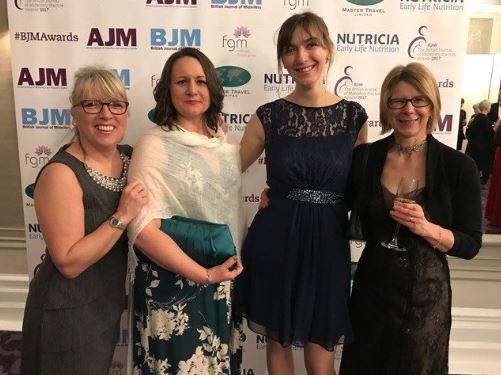I have a confession to make. Lovely Claire wrote this blog AGES ago. But it was when I caring for my lovely Mum during her final weeks and giving it proper attention and publishing it has only just hit the top of the ‘to do’ pile.
Anyway, Claire attended a Whose Shoes? workshop organised by Lewisham and Greenwich NHS Trust which was innovative because it was especially for student midwives. They are doing a lot of very interesting work using the WhoseShoes? approach – look out for smoking cessation. Claire put a lovely comment on Twitter so I invited her to write about it. You can read her article below (Gill Phillips – @WhoseShoes)
We do like a good event @LG_NHS I went to the student whose shoes and it was very informative and powerful
— Claire A (@Sunnydownlane) April 25, 2017
If you’re in healthcare, you will soon come to realise that everyone has a story, from the cleaner right up to the head clinician. These stories are shared and told frequently, often over the desk or in the small hours of the morning whilst sharing a cup of tea in a quiet moment. As a midwife, the art of storytelling becomes intrinsic to the profession, it is how we communicate and empathise with one another. Speaking of the highs and lows with each other, and forging bonds over the shared commonalities we face.
As a student, I reciprocate midwives’ stories; at points of success and failure there is often a chance to share an anecdote about a similar happening. This helps me to feel like I’m not the only one who has ever got something wrong, or gone about things in a bit of a long winded manner. It’s also how we learn. How often is it that you remember something due to the story accompanying the fact? I already have stories of my own, ones that I’ve shared with fellow students (and ones which I haven’t). Storytelling is important, it allows us to relate to one another as humans and empathise on a level that bare facts are often devoid of. In evidence and research, the lived experience of a human test subject in a drug trial is just as important, if not more so, than the success of a drug itself. What good is success if it comes at the emotional wellbeing of the person you’re trying to help?
It is the art of storytelling that ‘Whose Shoes’ is founded on, the sharing of real life experience that is captured and illustrated. I recently attended a ‘Whose Shoes’ event that was focused on the experience of the Student Midwife. Students from two different sites and universities came together to share their experiences, and listen to those of the families we seek to serve.
The experience was powerful, to sit and listen to a service user’s experience of where they felt listened to was inspiring and an example of what I wish to take forward into my own practice. As we played the board game and snatches of our conversations were transformed into the graphic record, it was interesting to see examples of both good and bad practice that students have witnessed. The unconscious labelling of women and their families, reducing them down to a group of risk factors and where they are along the timeline in terms of intervention. Students feeling invisible, and expected to perform skills which they may not have practiced for a few months due to their rotation through their placement cycle.
The positive aspects of having that extra time to spend with women and their families, of having the safety net of your mentor and university should matters go array. The fear that the job will take over the holistic aims of the profession, that as midwives we become swamped with paperwork and polices, that can cause women to become an afterthought. The reality is that due to chronic understaffing, maternity units and midwife themselves are overworked and busy. A student midwife facing this reality is right to be concerned, however, there are midwives and allied health professionals who want to work to change this.
This is what ‘Whose Shoes’ is about. It is about trying to facilitate change from the ground up. In the right circumstance, being faced with the story of someone’s personal experience within the healthcare system is a powerful tool. You can’t ignore the power of someone having the courage to stand up and say, ‘actually, I felt dehumanised’ or ‘I felt listened to.’ It influences one person who will influence the next, changing ethos and culture one small step at a time.

Thank you Claire and delighted to see that you were BJM Midwifery Student Midwife of the Year.
You are our future – be very proud! Gill

